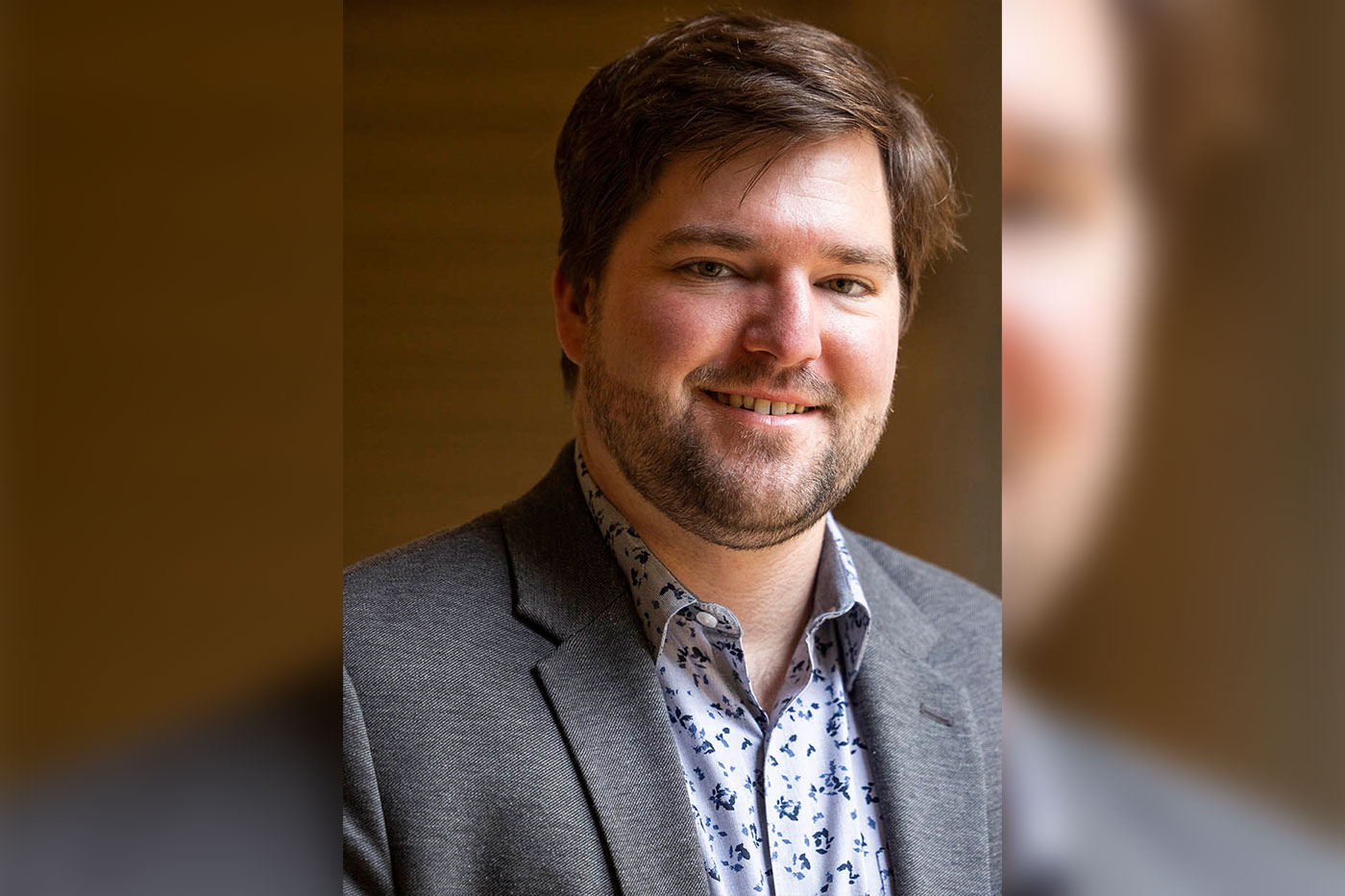The College of Health & Human Sciences study, funded by the Massachusetts Gaming Commission,
reveals a need for recovery voices in gambling policy discussions.
CREATORS

As legal sports betting continues to make headlines, a recent study revealed that 43% of U.S. adults view this form of gambling as bad for society and
sports, up from 34% in 2022.
Despite this, the number of Americans who have bet on sports in the past year has
not changed much since 2022, with 22% of adults saying they did so in the past year.
In fact, ever since the Supreme Court ruled states could legalize sports betting in
2018, many Texans have pushed for this transition.
Proponents claim letting Texans play will generate revenue that will provide property
tax relief and create other positive economic effects for the state. But as one of
few gambling researchers across the U.S., Devin Mills, Texas Tech University’s Evelyn M. Davies Professor in Addiction & Recovery, has developed a different perspective.
Through many related projects over the past five years and counting, Mills has found
state legislatures have often been short-sighted in developing policies that would
create and maintain programming to help players keep gambling safe and fun.
 Devin Mills
Devin Mills
Mills himself has enjoyed gambling, playing in poker tournaments and even making sport
bets on occasion, but he can stop whenever he wants. This is not the case for individuals
struggling with gambling disorder.
“It’s a challenge for them,” he said. “It is literally a disease of the choice and
they are prevented from really stepping away. It eats at them, and they’re not really
making decisions for themselves anymore.”
Without an increase of supportive measures in place for gambling disorder, Mills has
become concerned about the rapid expansion of legalized gambling. In particular, he
began to wonder about the extent to which increased access is impacting communities
in recovery from gambling or substance use disorders.
“I don’t think anyone had ever asked that question,” he said. “So, we were curious
about whether these individuals in recovery who are at risk for gambling disorder
with their history of addiction, are they at risk for a more negative impact from
legalized gambling?”
Mills recently took the opportunity to answer this question through a partnership
with the Massachusetts Council on Gaming and Health and funding from the Massachusetts
Gaming Commission. He set out to help these organizations determine how the state’s
launch of sports betting in 2023 affected those in recovery by assembling an initial
qualitative study.
From October 2024 to January 2025, Mills and two doctoral students with the College of Health & Human Sciences, Travis Spencer and Michelle Strong, conducted six 90-minute focus groups with 14
total participants, including individuals with lived experience and mental health
professionals specializing in addiction treatment. Together, these participants comprised
the community research team (CRT).
Mills and the doctoral students analyzed qualitative data from the sessions and identified
key themes, incorporating ongoing input from CRT members to ensure findings reflected both lived and professional perspectives.
“We were able to really get a rich data set of some interesting insight into how recovery
is defined and how gambling harms manifest,” Mills shared. “Through that information,
we started to scratch the surface on how legalized gambling impacts recovery.”
Merit for Concerns about Legalized Gambling
Mills and his team determined that recovery communities have struggled with the normalization
of gambling since it became legalized in Massachusetts. In fact, the temptation can
become incredibly overwhelming for those healing from gambling disorder as they encounter
betting opportunities at sporting events and broadcasts as well as online casinos
and mobile applications.
The harms from a relapse can be detrimental, resulting in various forms of financial,
emotional and social loss. Individuals with an ongoing gambling disorder can neglect
important responsibilities and fail in key roles like parenting, work or maintaining
a relationship and household. In more desperate measures, the individual may resort
to criminal activity like theft or fraud to further fund their gambling or repay debts.
Over time, gambling can contribute to significant mental and physical health problems,
including anxiety, depression and stress-related illnesses.
But to prevent this type of fallout, there must be a concrete understanding of what
gambling recovery entails. Mills and his team worked with members of the CRT to develop
this novel definition as “a strong commitment to redefine one’s relationship with
gambling in an ongoing effort, unique to everyone, to heal from the harms that gambling
has caused while fostering holistic life improvement.”
They further developed a five-step healing process that included setting personalized
recovery goals, understanding triggers, developing healthy coping processes, participating
in social support systems and replacing old patterns with meaningful activities. Using
these findings, Mills is in the process of developing a quantitative self-report measure
that researchers and clinicians can use to access and track recovery.
This tool would be much more tangible in preventing the complications of gambling
disorder than the industry term “responsible gambling (or gaming),” which CRT members
argue is not necessarily a fully conscious decision of the person gambling.
“I just think it needs to be acknowledged that stigmatizing the person by telling
them that they are being responsible or irresponsible, especially when they are receiving
some type of treatment, doesn’t help much when they are already dealing with all the
stress, all the negative impact of gambling and the financial relationships and everything
that happens to the person,” one CRT member shared.
“So, then we come from this point of view that they’re being irresponsible and I feel
like that might not be that way. I feel like speaking that way might even be harmful
for people who gamble and have a problem with gambling.”
The CRT member went on to say that “responsible gaming” should be considered in how
games are advertised.
“The way they are aggressively pushed towards people in general could also be defined
as responsible or irresponsible, but I don’t know that that’s the point really. When
we try to understand if something is harmful…we should just try to acknowledge the
effect of that harm instead of trying to define it based on the persona’s qualities.”
Mills and his research team found a need to determine a less stigmatizing term, as
well as encourage safer gambling practices such as sticking with a budget and time
limits, abstaining from substance use while playing, and stopping when playing is
no longer fun.
As for individuals in recovery from substance use disorders, who may have limited
or even no experience with gambling, placing bets sometimes becomes a substitute for
their addiction to substances. The study result revealed there should be an increase
in resources to support recovery communities directly by appropriate taxing gross
gaming revenues.
Call for More Recovery Support
This broadened the perspective of Strong, a Center for Students in Addiction Recovery research assistant, as she learned that while gambling legalization generates tremendous
revenue for the state, little of that funding is directed toward recovery support
for those harmed by problematic gambling.
She describes this as an urgent need.
“While substance use tends to dominate the public and attract the most resources,
this project illustrated the hidden struggles of gambling disorder,” said Strong.
“The study community generously shared their lived experiences of recovery, underscoring
how ‘silent addictions’ often go unnoticed and underfunded.”
The CRT members believe if their voices are amplified within ongoing policy discussions
they can provide actionable insights that will shape future gambling regulations and
recovery supporting Massachusetts and beyond. They would like gambling to be treated
as a legitimate addiction so they can not only reduce stigma but also receive improved
care.
They are particularly interested in increasing social and structural assistance deemed
essential to initiate and sustain recovery, including access to a community of support
and accountability, targeted interventions as well as culturally responsive resources.
Along the course of this study, Spencer, a research assistant in the Department of Community, Family, & Addiction Sciences, became invested in bridging this gap between people seeking recovery and the communities
that support them.
“Amplifying the voices of individuals doing the hard work of addiction recovery is
essential to recovery research, particularly in the rapidly evolving landscape of
gambling addiction,” Spencer said. “As my first experience working on a grant-funded
project, I could not have asked for a more supportive mentor or a more meaningful
topic.”
Once the project was complete, Mills and his team presented their findings to the
Massachusetts Gaming Commission. They were able to address a number of questions and
received mainly glowing feedback.
“They believed it was incredibly helpful in terms of how the commission thinks about
the impact of gambling,” Mills recalled. “One of the things they highlighted was they
might not be doing enough in terms of marketing their available resources for players.
That was something that they were interested in, and excited about, in terms of getting
that feedback and moving forward.”
Next Steps for the Legalized Gambling Study
Mills, Spencer and Strong are all eager to build on their results in the following
stages of this study. They are deep into the second year of funding to develop the
online survey tool that can be used by clinicians when treating a patient in recovery.
They hope to recruit more individuals struggling with problematic gambling to join
their CRT to further understand how legalized gambling affects individuals at various
stages of the recovery process. They also would like to review how other vulnerable
populations are affected by legalized gambling, such as those who are unwell or have
mental disabilities, older populations and adolescents.
Investigating these questions could inform future interventions and policy efforts
aimed at protecting recovery communities in an increasingly gambling-saturated environment.
Without these supports in place, legalization may continue to exacerbate disparities
in gambling harms and recovery outcomes.
While making gambling safer was a key promise of legalization, the CRT’s experience
suggests that without stronger regulations and investment in prevention and recovery,
the reality falls short of that goal.
“These gambling industry partners value their players and they don’t want to take
advantage of them,” Mills explained. “They want to make sure they support their players
to engage recreationally and have a positive experience when they gamble at their
venues or online. So, we need to be working in tandem with these partners and create
reasonable regulations that don’t take away from the gaming experience but only add
to the positive experience that they have. This will allow players to leave the game
at the casino and be able to step away when need to.”
Mills believes Texas lawmakers need to start investing in gambling research now as
lawmakers continue to weigh whether to legalize gambling.
“I risk hyperbole here, but gambling expansion in the U.S. is going to be the next
mental health crisis if we do not address it soon,” Mills said. “We may not have the
casinos that mirror Las Vegas or some of the tribal casinos in Oklahoma or other states
that border us, but we have a very strong sports gambling and daily fantasy sports
climate. We also have a large and growing card club culture here in Texas, as well
as game rooms that remain unregulated.
“Gambling is here and alive in Texas, and I hope the state eventually takes notice
and we increase funding to better study gambling and we also create a context in which
players are engaging safely.”
Mills has several resources he recommends to help those struggling with gambling.
Free, confidential, 24/7 support is available by calling or texting the National Problem
Gambling Helpline at 1-800-GAMBLER (1-800-426-2537) or by visiting www.1800gamblerchat.org. Texas residents may also reach out to The Gambling Clinic of Texas for specialized services.
